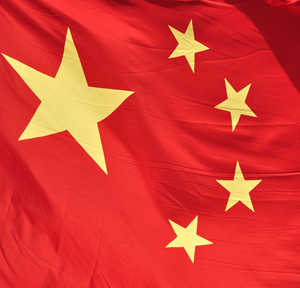Investment Strategies
China Will Go For Growth Once Congress Is Over – Lombard Odier

The private bank predicts that Chinese policymakers may move to boost growth and try and tackle issues around debt, real estate and other sectors once the Communist Party Congress is out of the way.
China is likely to pivot towards pro-growth policies, ease pandemic restrictions and attempt to wrestle with its debt-laden property market once the Communist Party’s 20th Congress is complete, Lombard Odier predicts.
The Switzerland-based private bank said in a note that it is keeping its overweight stance on Chinese equities, relative to other emerging markets, and in China’s sovereign debt, hedged into dollars.
The country’s zero-Covid policies, crackdowns last year on certain sectors such as technology and after-hours/for-profit education, and strains in the real estate sector, have weighed on Chinese markets this year. The MSCI China Index is down 32.5 per cent (in dollars), one of the worst performers around the world. Once seen as an unstoppable global economic power, China’s tussles with the US over trade, tensions over Taiwan and Hong Kong, among other issues, have prompted questions about the country’s direction.
President Xi Jinping is expected to secure a third term in office and the Congress is due to renew three-fifths of senior posts, Stéphane Monier, chief investment officer at the bank, said.
“Authorities may then shift economic focus to growth, loosen Covid policies, further stabilise the property market, and support domestic industries and demand,” he said.
The CCP Congress is due to start on 16 October. If Xi is confirmed as president, it will be an unprecedented move.
Monier predicts that gross domestic product could expand by 3.3 per cent in 2022, and by 5.5 per cent in 2023, depending on the pace of re-opening and further policy support.
The renminbi (aka yuan) exchange rate against the dollar may continue to weaken, reaching 7.15 over 12 months.
The Congress, which takes place every five years, selects its 200-strong Central Committee that, in turn, chooses leaders in the CCP’s Politburo, the top of China’s political power.
“Once the Congress is over, we expect the CCP to signal a pivot back to growth in its economic and public health policies for 2023,” Monier said.
“The CCP, which celebrated its hundredth year in 2021, has a ‘second centenary goal’ of building China into a ‘great modern socialist country’ by 2050. The party has also committed itself to ‘doubling’ the size of China’s economy by 2035 as an intermediate goal, and that ambition means China will have to maintain growth rates of low-to-mid 4 per cent per year for the decade ahead,” he continued.
“A push may start by relaxing the immediate hurdle of zero-Covid policies. The country of 1.4 billion people has officially recorded little more than 2.8 million Covid infections and 15,400 deaths, a fraction of the toll in the rest of the world. Under the policy, China’s authorities tried to stamp out every Covid outbreak with lockdowns, forced isolations and strict travel restrictions,” he said.
“The health policy has also isolated China from the rest of the world. Just 150 international flights landed or took off from China on 3 October, compared with 2,700 the same day three years ago…“While the restrictions have started to meet resistance among citizens, in some ways, the country had little choice. It has an ageing population relatively poorly protected by domestically-developed vaccines. There are limited re-opening steps. The ‘special administrative regions’ of Hong Kong and Macao have both lifted some restrictions, acting as test-cases for the wider country while some senior CCP officials have travelled or appeared at public events without face masks. If the CCP can relax Covid policy in 2023, one drag on growth and productivity should lift.”
Monier said that with global demand from trading partners for Chinese goods cooling, the country needs “domestic growth drivers to offset likely export weakness, and meet economic goals.”
"In areas affected by regulatory crackdowns and macroeconomic austerity, the obvious choice is to ease or even reverse some measures,” he said.
“Clearly, the government must stabilise the property market, which accounts for more than one-fifth of gross domestic product (GDP). It is also politically sensitive. A large share of Chinese private wealth is locked into home ownership, and new property prices have fallen for the past year. The government has eased mortgage rates, loan access and other home-buying restrictions to shore-up housing demand and started to allow access to onshore bond markets,” he said.
He added that given supply chain disruptions, aggravated by the Russian invasion of Ukraine, China will respond with support for industrial activities and investments, and remove the public health policy “roadblock.”